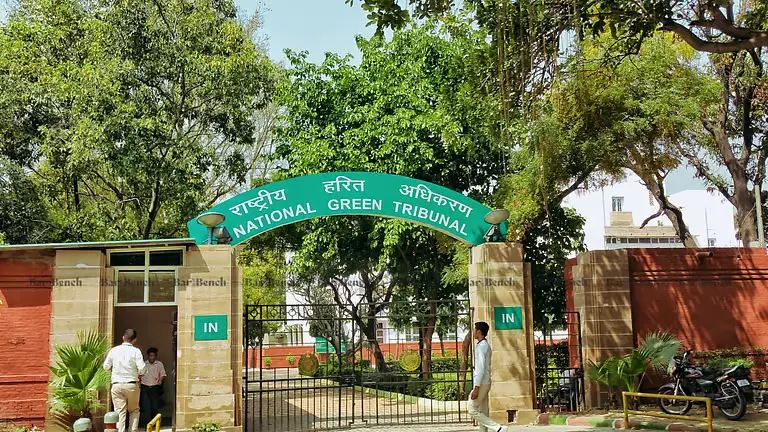Police camps in forest: NGT seeks Assam, Centre’s response over green nod

NGT Investigates Assam’s Forest Law Breach Over Police Commando Camps
The National Green Tribunal (NGT) has expressed concerns about the construction of police commando camps in Assam’s Hailakandi district. The Tribunal is questioning the Assam government and the Ministry of Environment, Forest, and Climate Change (MoEF&CC) about whether they followed proper environmental clearance procedures before setting up the camps.
Justice Prakash Shrivastava leads a bench, which includes Justice Sudhir Agarwal and environmental expert A Senthil Vel. The Tribunal is reviewing the use of 44 hectares of protected forest for the commando facility in Hailakandi.
Environmental Clearance Issues?
Rohit Choudhury, an environmental activist, brought the issue to the Tribunal’s attention. His counsel, advocate Parul Gupta, argued that the construction required clearance under the Environmental Impact Assessment (EIA) Notification, 2006. According to EIA norms, any construction over 20,000 square meters must undergo environmental review before the work begins.
The NGT took this argument seriously and instructed the Assam government and MoEF&CC to submit additional affidavits. These affidavits must confirm whether they obtained the necessary environmental clearance before constructing the camp.
Ministry Flags Violations of Forest Conservation Act
The Environment Ministry raised concerns last year about the construction at Hailakandi. According to the Ministry’s report, the project violated the Forest Conservation Act of 1980 because authorities failed to obtain the required central approval before using forest land for non-forest purposes.
The Shillong regional office of the Ministry conducted a site inspection. The report named M K Yadava, a senior Assam government officer, as the person responsible for directing the use of forest land without the proper clearance.
Strong Words from the Bench
Justice Shrivastava called the incident a “flagrant breach” of forest conservation laws. Justice Agarwal referenced a recent Supreme Court ruling involving Vrindavan, where the court fined violators Rs 1 lakh per tree for illegal cutting. He questioned whether authorities responsible for the Hailakandi construction should face similar penalties.
After-the-Fact Approvals Raise Concerns
In February 2025, the Environment Ministry approved the construction of both the Hailakandi and Geleky police camps after they had already been completed. The Ministry’s Forest Advisory Committee granted ex-post facto environmental clearances and imposed financial penalties for the violations.
Environmentalists argue that post-construction approvals weaken environmental regulations. Once trees are cut and structures are built, penalties cannot undo the environmental damage. This practice has raised alarms among environmentalists.
On-Site Inspections Reveal Scale of Construction
During the inspection, the Ministry’s team found that permanent buildings covered 11.5 hectares of forest land. These included residences, a mess hall, a hospital, a school, and a community center. The scale of construction suggests this was not a temporary setup, raising questions about how such a significant project proceeded without proper approval.
Environmentalists worry about the lack of oversight for such a large project and wonder how it went unnoticed by higher authorities.
Two Projects Under Scrutiny
While the principal NGT bench is reviewing the Hailakandi camp, the eastern bench in Kolkata is examining the Geleky camp. Both camps were built on forest land, and neither had the required approvals at the time of construction.
Experts are concerned that state agencies may continue to bypass forest laws, seeking post-construction approval with fines as the solution.
What’s Next?
The NGT has requested detailed responses from the Assam government and MoEF&CC. These responses will help determine whether the authorities followed the required legal procedures when building the camps. If the NGT imposes strict penalties, it could set an important precedent.
The Bigger Picture
India faces increasing pressure to balance development and environmental protection. While infrastructure such as police camps is important, it must comply with environmental laws. Forests play a crucial role in biodiversity, climate regulation, and water systems, making their preservation essential.
This case could force policymakers to rethink how they handle development on sensitive land. It will test whether environmental laws have real power or if they are ignored when it’s convenient.






